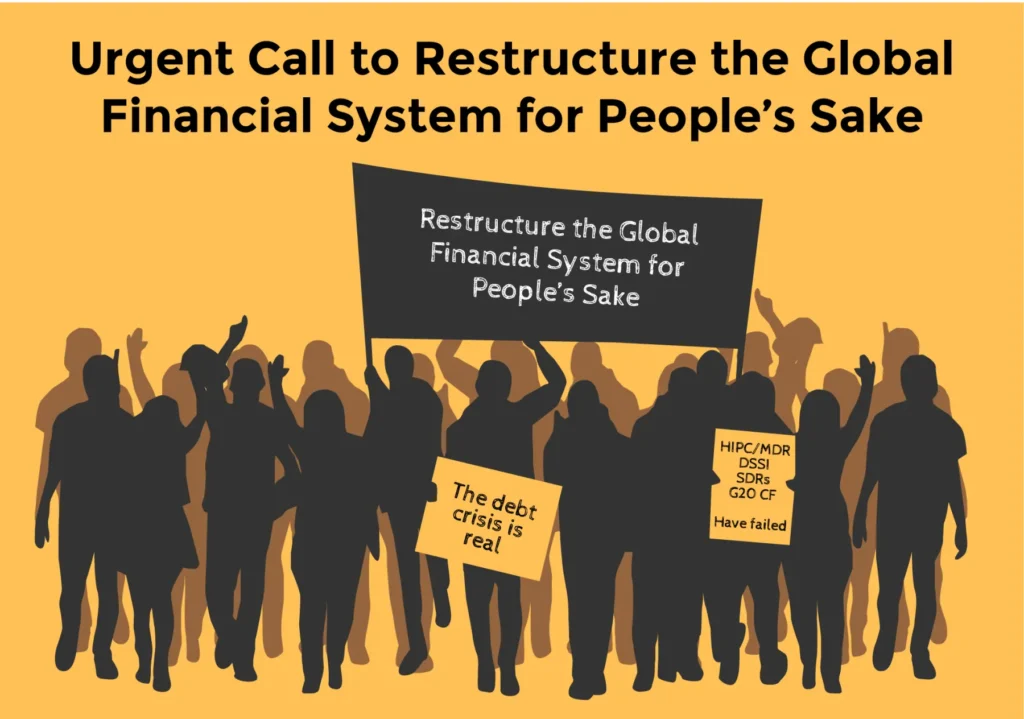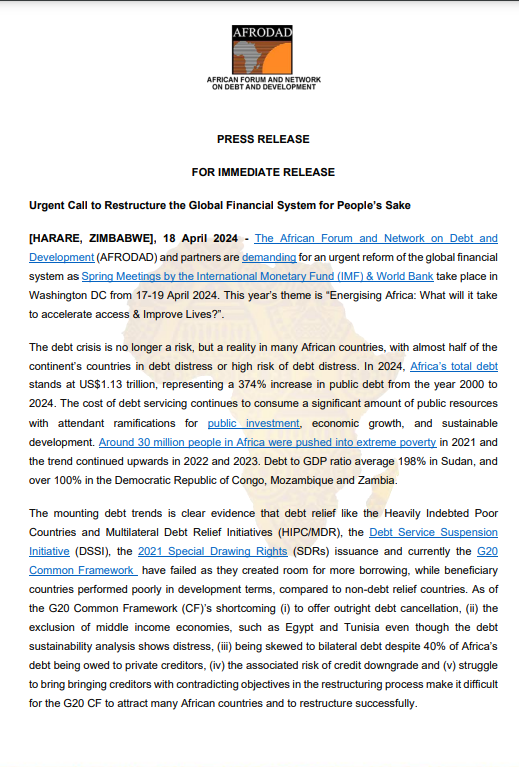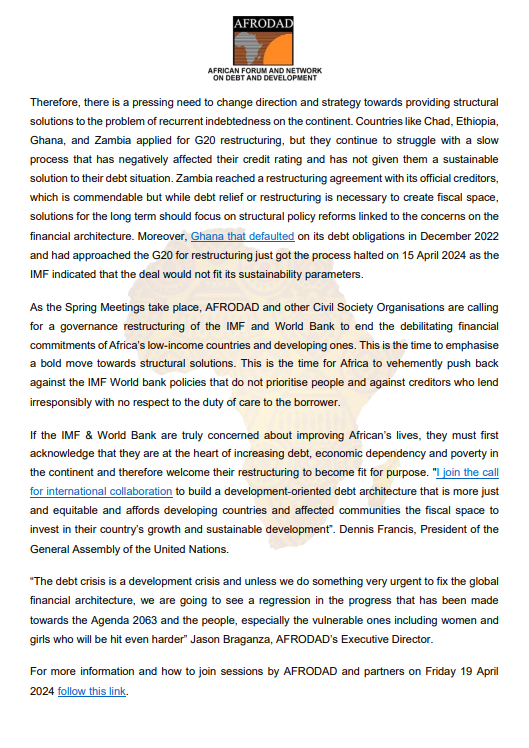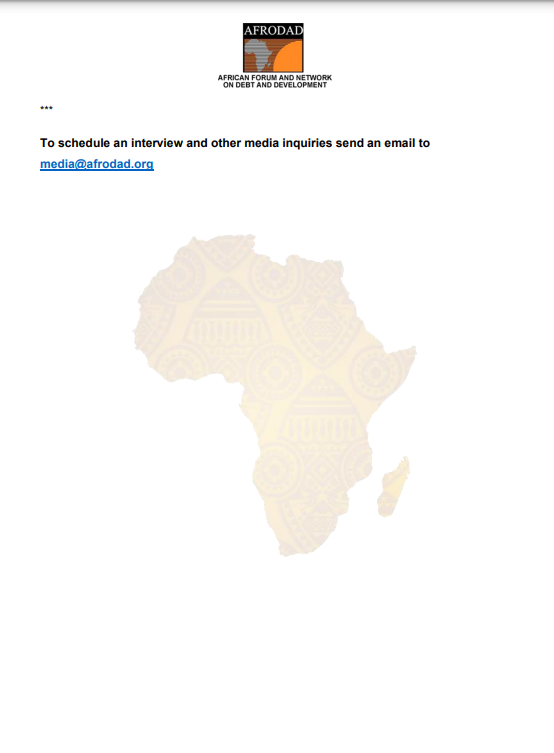By Etienne Mainimo Mengnjo
The African Forum and Network on Debt and Development (AFRODAD) and partners have called for urgent reform of the global financial system, citing a growing debt crisis that threatens Africa’s development.

The demand comes amidst the ongoing Spring Meetings of the International Monetary Fund (IMF) and World Bank in Washington DC, themed “Energising Africa: What will it take to accelerate access & Improve Lives?”.
AFRODAD and its partners warn that Africa’s debt crisis is a harsh reality, with nearly half the continent’s countries facing debt distress or high risk. The continent’s total debt has skyrocketed to US$1.13 trillion in 2024, a staggering 374 percent increase since 2000.
“In 2024, Africa’s total debt stands at US$1.13 trillion, representing a 374 percent increase in public debt from the year 2000 to 2024,” the release read.
This debt burden, the release emphasizes, diverts critical public resources away from essential investments in growth and poverty reduction. AFRODAD an partners estimates that debt servicing pushed an additional 30 million Africans into extreme poverty between 2021 and 2023.
The report criticizes existing debt relief initiatives like the Heavily Indebted Poor Countries (HIPC) and Multilateral Debt Relief Initiatives (MDRI), the Debt Service Suspension Initiative (DSSI), and the 2021 Special Drawing Rights (SDRs) issuance as inadequate.
AFRODAD an partners argues that these programs create opportunities for further borrowing without addressing the root causes of debt. Furthermore, beneficiary countries haven’t shown significant development improvements compared to those without debt relief.
They urges a shift towards “structural solutions” to Africa’s debt problems. The organization points to the slow and bureaucratic G20 Common Framework debt restructuring program, which has negatively impacted credit ratings without delivering sustainable solutions.
AFRODAD and partnering Civil Society Organizations (CSOs) call for a governance reform of the IMF and World Bank to end the “debilitating financial commitments” imposed on African nations. They advocate for a “bold move” towards solutions that prioritize people and reject irresponsible lending practices.
The release further urged the IMF and World Bank to acknowledge their role in Africa’s debt crisis and embrace reforms that prioritize the continent’s development.


